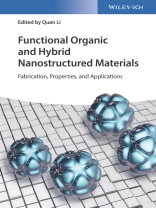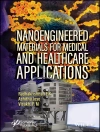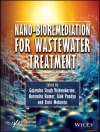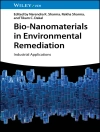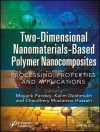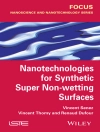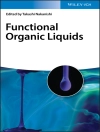The first book to explore the potential of tunable functionalities in organic and hybrid nanostructured materials in a unified manner.
The highly experienced editor and a team of leading experts review the promising and enabling aspects of this exciting materials class, covering the design, synthesis and/or fabrication, properties and applications. The broad topical scope includes organic polymers, liquid crystals, gels, stimuli-responsive surfaces, hybrid membranes, metallic, semiconducting and carbon nanomaterials, thermoelectric materials, metal-organic frameworks, luminescent and photochromic materials, and chiral and self-healing materials.
For materials scientists, nanotechnologists as well as organic, inorganic, solid state and polymer chemists.
Зміст
Functional Molecular Gels
Guest-Host Nanostructured Supramolecular Polymers
Photochromic Organic & Hybrid Self-Organized Nanostructures
Stimuli-Directed Self-Assembled One-Dimensional Organic Semiconductors
Functional Block Copolymer and Their Self-Assembly
Self-Assembled Graphenes and Their Applications
Aligned Carbon Nanotubes
Organic-Inorganic Hybrid Nanostructured Materials for Thermoelectric Energy Conversion
Piezoelectric Organic-Inorganic Hybrid Nanostructured Materials for Mechanical Energy Harvesting
Organic-Inorganic Hybrid Nanostructured Materials for Perovskite Solar Cells
Organic Frameworks based on Carbon and Nitrogen as Novel Semiconductor Systems and Advanced Catalysts
Metal-Organic Frameworks
Bioinspired Organic and Hybrid Nanostructured Materials
Hybrid Supramolecular Nanomaterials
Hybrid Luminescent Nanostructures
Organic and Hybrid Mesoporous Materials
Про автора
Quan Li is Director of Organic Synthesis and Advanced Materials Laboratory at Liquid Crystal Institute of Kent State University, where he is also Adjunct Professor in the Chemical Physics Interdisciplinary Program. He, as a Principal Investigator and Project Director, has directed the cutting edge research projects funded by U.S. Air Force Office of Scientific Research, U.S. Air Force Research Laboratory, U.S. Army Research Office, U.S. Department of Defense Multidisciplinary University Research Initiative, U.S. National Science Foundation, U.S. National Aeronautics and Space Administration, U.S. Department of Energy, Ohio Board of Regents under Its Research Challenge Program, Ohio Third Frontier, Samsung Electronics, etc. He received his Ph.D. in Organic Chemistry from the Chinese Academy of Sciences (CAS) in Shanghai, where he was promoted to the youngest Full Professor of Organic Chemistry and Medicinal Chemistry in February of 1998. He was a recipient of CAS One-Hundred Talents Award (Bei Ren Ji Hua) in 1999. He was Alexander von Humboldt Fellow in Germany. He has won Kent State University Outstanding Research and Scholarship Award. He has also been honored as Guest Professor and Chair Professor by several Universities.
